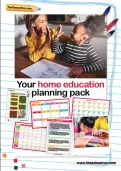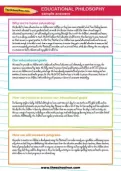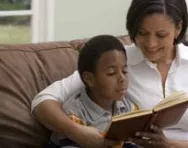Important update from TheSchoolRun
For the past 13 years, TheSchoolRun has been run by a small team of mums working from home, dedicated to providing quality educational resources to primary school parents. Unfortunately, rising supplier costs and falling revenue have made it impossible for us to continue operating, and we’ve had to make the difficult decision to close. The good news: We’ve arranged for another educational provider to take over many of our resources. These will be hosted on a new portal, where the content will be updated and expanded to support your child’s learning.
What this means for subscribers:
- Your subscription is still active, and for now, you can keep using the website as normal — just log in with your usual details to access all our articles and resources*.
- In a few months, all resources will move to the new portal. You’ll continue to have access there until your subscription ends. We’ll send you full details nearer the time.
- As a thank you for your support, we’ll also be sending you 16 primary school eBooks (worth £108.84) to download and keep.
A few changes to be aware of:
- The Learning Journey weekly email has ended, but your child’s plan will still be updated on your dashboard each Monday. Just log in to see the recommended worksheets.
- The 11+ weekly emails have now ended. We sent you all the remaining emails in the series at the end of March — please check your inbox (and spam folder) if you haven’t seen them. You can also follow the full programme here: 11+ Learning Journey.
If you have any questions, please contact us at [email protected]. Thank you for being part of our journey it’s been a privilege to support your family’s learning.
*If you need to reset your password, it will still work as usual. Please check your spam folder if the reset email doesn’t appear in your inbox.
How to write an educational philosophy

Although it's not a compulsory part of home education, many home educating families choose to write an educational philosophy: a general statement of what you think is worth teaching your child and how you intend to do it. In other words, it sums up the guiding principles of your approach to home education.
Some home educators write an educational philosophy purely to show their local authority as evidence of what they're doing with their child, but they're also helpful in focusing your mind on how you're going to approach home education.


Free home education planning pack & resources
- Guidance, templates and advice to get you started
- Practical tips from experts and parents
- How to establish a routine and set learning goals
The law says the education you provide should be "efficient" and suitable for a child's age, ability and aptitude, and to any special educational needs they may have.
If you're considering writing an education philosophy, it's worth remembering the general principles of education – to encourage a person’s physical, intellectual, emotional, spiritual, moral, social and cultural development.
Why write an educational philosophy?
'An educational philosophy focuses the mind on what a person believes is important about education,' says Dr Helen Lees, an expert on home education at Newman University in Birmingham.
Part of Dr Lees’ work includes helping local authorities develop policies on home education and – depending on the family – she sometimes suggests that local authorities ask parents to talk through their educational philosophy. 'It shows real and careful educational thought is happening – and I think a parent’s approach to education is more important than asking about standards the child has reached,' she explains.
Do you have to write an educational philosophy?
There's no legal obligation for home educating families to write an educational philosophy, but most experts strongly recommend that you include one in your initial submission to the local authority about your intention to home educate, and many local authorities have come to expect one (although they can't insist on it). 'In my view, asking a parent if they have an educational philosophy is the only "test" for home education that might ever be necessary for authorities,' Dr Lees explains.
What should an educational philosophy include?
The principles of home education, and the huge variety of ways in which different families approach it, mean an educational philosophy shouldn’t be prescriptive. 'It's a guiding principle rather than a set of strict guidelines and a genuine statement of educational beliefs, which, of course, might change as the child’s education develops in means and manner – from structured to unstructured for instance,' Dr Lees says.
'You could include something like, "we believe as parents our children should have the freedom to decide to learn what they want to know about. We believe our children need and deserve to have contact with other children. We believe that our children can learn through the community such as using the library, museum and swimming pool. We believe as parents it is our responsibility to facilitate this.”'
Be aware of how your child learns before you write your educational philosophy. 'Some children like the structure of sitting down at the kitchen table with exercise books; others don’t. If you write in your educational philosophy you will do seven lessons by 4pm on a weekday, it could fall apart if it doesn’t suit your children,' says Dr Lees.
Your educational philosophy could include:
- An introductory paragraph setting out why you are choosing to home educate, your general approach (for example, is it autonomous, where you're guided by your child's interests, or structured, where you're following a more structured programme of lessons?), and your role in educating your child.
- Your educational goals for your child. These could be specific ('in history, I want my child to learn about the differences between life today and in Victorian Britain') and/or general ('I want my child to have opportunities to learn alongside other children').
- A summary of how you will help your child meet those goals.
- An overview of the resources you'll use. Again, these could be specific (e.g. mentioning specific textbooks and websites that you'll use) or generic (e.g. 'We will visit the library and local museums').
You can read some examples of educational philosophies here.
How often should you update your educational philosophy?
Many families who home educate update their educational philosophy annually and send the revised version to the local authority. Although this isn't a requirement, it can satisfy the local authority that your child is receiving a suitable education, and reduce the likelihood of them requesting face to face meetings.
However, you can also update it as and when it suits you – for example, if your original plans or approach to home education change. 'People are free to adapt it so it works for them in their own circumstances and for their own children,' says Dr Lees.
Can the local authority ask for more information about an educational philosophy?
Yes, but only if it feels there is a significant cause for concern – that is, if the local authority is worried about your child being safe from harm, or is concerned that you're not providing a suitable education as set out in the Education Act 1996.
Where can you get help writing an educational philosophy?
The following websites have useful information about how to write your educational philosophy:
You can also download an educational philosophy template in TheSchoolRun's Home education planning pack.








